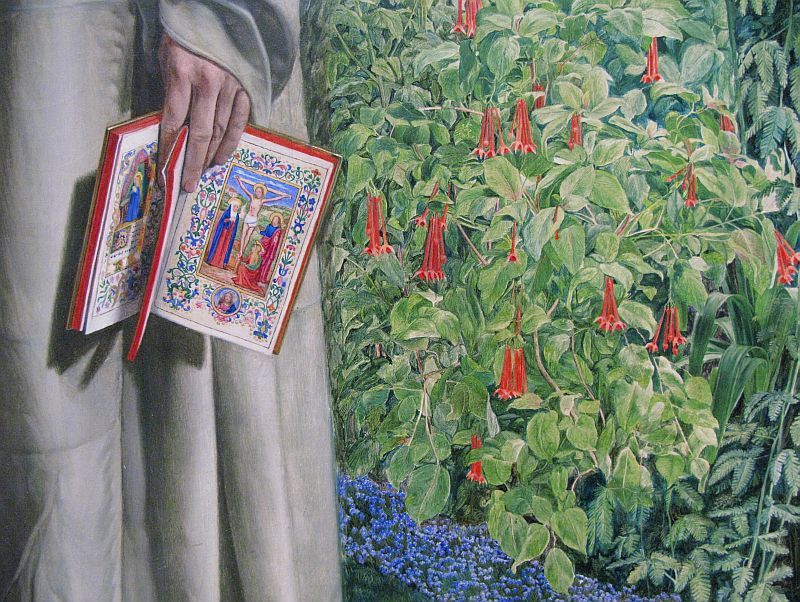Some of us need reasons for doing what others know immediately to be pleasant and good. Reading good works of fiction is one of those things for some. With a family, a parish, a school, and multiple side projects to attend to, I needed reasons to read. I thought I needed time, but I really just needed motivation. I recently picked up a book on time management (yawn!), in which the author explains that often when a person says “I don’t have time” what they are really struggling with is a need to better organize their time. There is always time to read good books. But, are there reasons for prioritizing them, for carving out a precious block of time for them? I like to think of reading as a preparation for prayer, a feeding of the soul with meditations, because “if there is any virtue and if there is anything praiseworthy (Phil. 4:8-9)”, the Scriptures call us to “meditate on these things.” To read good books is to drink intellectual wine on the lees to gladden the heart of man, filling the heart with a reason and a readiness to turn to God, in good times and bad, with a song of praise and thanksgiving for all that is Good, True, and Beautiful and Holy.
Founding a classical Christian school has taught me this again, and yet it is a lesson I had to slowly relearn for myself. As Vigen Guroian points out in Tending the Heart of Virtue, “Mere instruction in morality is not sufficient to nurture the virtues. It might even backfire, especially when the presentation is heavily exhortative and the pupil’s will is coerced. Instead a compelling vision of the goodness of goodness itself needs to be presented in a way that is attractive and stirs the imagination. A good moral education addresses both the cognitive and affective dimensions of human nature. Stories are an irreplaceable medium for this kind of moral education” (20). We become like what we find attractive, and we tend to be attracted to what we perceive to be good for us. Perception of goodness (or good perception) is developed in the imagination, and the modern imagination especially is filled with all manner of self-amusing and aggrandizing images, pornographic, distorted depictions of friends and family, fantasies that draw the heart away from its truest good, thereby quenching its attraction to the good life. The Anglican pedagogue Charlotte Mason understood this quite well. She says the desire for the aesthetic is open to many disasters. “It dies of inanition when beauty is not duly presented to it, beauty in words, in pictures and music, in tree and flower and sky. The function of the sense of beauty is to open a paradise of pleasure for us; but what if we grow up admiring the wrong things, or, what is morally worse, arrogant in the belief that it is only we and our kind who are able to appreciate and distinguish beauty? It is no small part of education to have seen much beauty, to recognize it when we see it, and to keep ourselves humble in its presence” (A Philosophy of Education, 56).
Indeed, “the heart is deceptive above all things.” As mere instruction in morality is insufficient, so good stories, poems, and songs are also not sufficient in themselves to nurture the virtues. In The Brothers Karamozov, Dmitri boasts, “I always read [Schiller’s] poem about Ceres and man. Has it reformed me? Never!…” Paul Contino brings up this point in his book Dostoevsky’s Incarnational Realism. A certain complacency to the real world might develop in one whose imagination has been drawn into other worlds by good books. In order to combat this complacency there needs to be what Mikhail Backhtin called “a Third”, that is, a third party whose standard of goodness leaves the reader uneasy with the bifurcation between a mere imaginative peace of mind (the “first”) and the world at large (the “second”). The recognition of this bifurcation and the presence of the Third, Backhtin argues, leads to truth and repentance. As Contino says, “Realistically, a transformative encounter with literature – and the ‘grounded peace’ that may follow – is unlikely without repentance, prayer, and action. The aesthetic experience must be followed by the theo-drama of active love. Trust in the presence of Bakhtin’s “Third” grounds my hope that we can ‘become better people’ by reading books like The Brothers Karamazov” (218-19).
